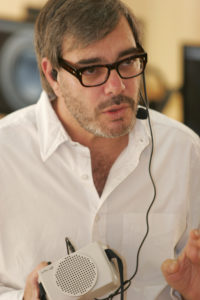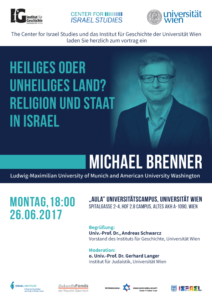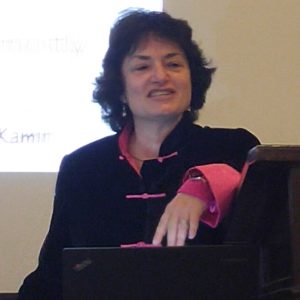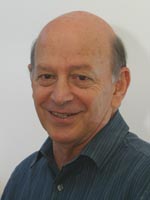27. November 2017 „Turning Points in Israeli History: From the Balfour Declaration to the Camp David Accords“. Prof. Itamar Rabinovich (chair), Prof. Shlomo Ben-Ami, Prof. Ilan Troen




Amb. Prof. Itamar Rabinovich is founding President of the Israel Institute, a Distinguished Global Professor at New York University, and Non-Resident Distinguished Senior Fellow at the Brookings Center for Middle East Policy. He is Professor Emeritus of Middle Eastern History at Tel Aviv University and the University’s former President. Ambassador Rabinovich has been a member of the faculty of Tel Aviv University since 1971 and served as Chair of the Department of Middle Eastern Studies, Director of the Dayan Center for Middle Eastern and African Studies, Dean of the Humanities, and Rector. From 1992-1996, he was Israel’s Ambassador to the United States and chief negotiator with Syria. Ambassador Rabinovich’s most recent books are The Lingering Conflict: Israel, The Arabs and the Middle East (2011) and The View from Damascus (2009). He is a member of the American Philosophical Society, a foreign member of the American Academy of Arts and Science and a member of the Trilateral Commission. He earned a B.A. from the Hebrew University of Jerusalem, an M.A. from Tel Aviv University and a Ph.D. from the University of California, Los Angeles.
Prof. Shlomo Ben-Ami graduated from Tel Aviv University and St Antony’s College, Oxford. From the 1970s onwards he was a historian at Tel Aviv University, serving as head of the School of History from 1982 to 1986. 1999 he was appointed Minister of Internal Security and in addition in 2000 Foreign Minister. In 2002 he resigned from the Knesset. In 2006- 2010 Prof. Ben Ami served in the board of the International Crisis Group. He is now a member of the Crisis Group Senior Advisers. In 2009-2010 he was a member board of the Commission for Nuclear Non proliferation co-sponsored by the governments of Australia and Japan. Ben-Ami is currently Vice-President of the Toledo International Centre for Peace. His latest book is “Scars of War, Wounds of Peace: The Israeli–Arab Tragedy” (published in Oxford, 2006)
Prof. Ilan Troen was born in Boston, educated at Brandeis, the Hebrew University in Jerusalem and the University of Chicago. Before moving to Israel in 1975 when he joined Ben-Gurion University, he was on the faculty of Missouri and Princeton. At the Ben-Gurion University he was the Lopin Professor of Modern History; Dean of the Faculty of Humanities and Social Sciences; Director of the Ben-Gurion Research Institute and Archives in Sede Boker; and Director of the Kreitman Foundation Fellowships. At Ben-Gurion University he contributed to pioneering programs in Israel Studies and was the founding Editor of Israel Studies. He established the Schusterman Center for Israel Studies. He has authored or edited numerous books in American, Jewish and Israeli history.
He is co-author of the following publications: “Jews and Muslims in the Arab World; Haunted by Pasts Real and Imagined” Rowman and Littlefield, 2007; “Imagining Zion: Dreams, Designs, and Realities in a Century of Jewish Settlement” Yale University Press, 2003; “Divergent Jewish Cultures: America and Israel” Yale University Press, 2001.






















